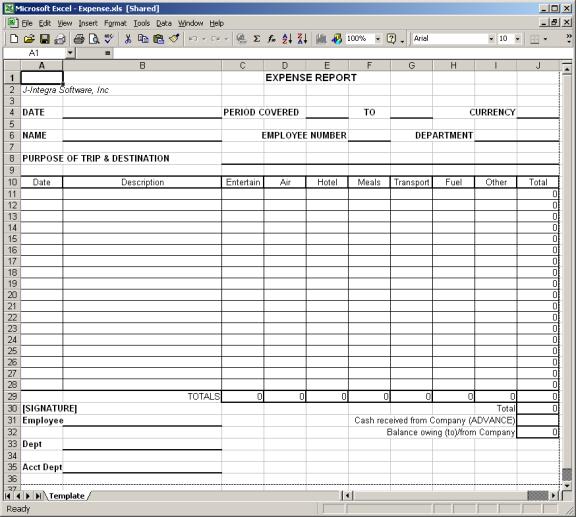Save Excel Data with Java: Easy Steps

Working with Microsoft Excel files programmatically can open up a plethora of possibilities for automating data processing tasks. Java, with its robust ecosystem of libraries, offers several ways to work with Excel files, whether it's reading, writing, or manipulating the data. In this comprehensive guide, we'll explore how to save Excel data using Java, focusing on the most straightforward methods and libraries that make this task not just possible but also efficient.
Understanding the Libraries

Before diving into the code, it’s essential to understand the libraries that can help us interact with Excel files:
- Apache POI - This is one of the most popular libraries for working with Excel files in Java. It supports both older formats (.xls) and the newer ones (.xlsx).
- JExcelApi - A lightweight alternative to Apache POI, specifically designed for Excel manipulation.
- Jxls - Focuses on Excel report generation using templates but can also be used for data manipulation.
Setting up Apache POI

We’ll use Apache POI for this tutorial due to its wide acceptance and support for newer Excel formats.
- Add Apache POI dependencies to your project. For Maven users:
org.apache.poi
poi
5.2.0
org.apache.poi
poi-ooxml
5.2.0
⚠️ Note: Ensure you have internet access to download the dependencies.
Saving Data to an Excel File

Here’s a step-by-step guide to save data to a new or existing Excel file:
Create or Open Workbook

First, decide whether you’re creating a new workbook or opening an existing one:
import org.apache.poi.ss.usermodel.*;
import org.apache.poi.xssf.usermodel.XSSFWorkbook;
// For creating a new workbook
Workbook workbook = new XSSFWorkbook();
FileOutputStream fileOut = new FileOutputStream("newWorkbook.xlsx");
// For opening an existing workbook
Workbook workbook = WorkbookFactory.create(new File("existingFile.xlsx"));
Add or Modify Sheets

You can either create a new sheet or work on an existing one:
// Creating a new sheet
Sheet sheet = workbook.createSheet("Sheet1");
// Using existing sheet (first sheet)
Sheet sheet = workbook.getSheetAt(0);
Write Data

Now, let’s write some data to the cells:
Row row = sheet.createRow(0); // Index starts at 0
// Create cells and fill them with data
for (int i = 0; i < 3; i++) {
Cell cell = row.createCell(i);
cell.setCellValue("Cell " + i);
}
Save the Workbook

After modifying the data, save the workbook:
try {
fileOut.flush();
fileOut.close();
workbook.write(new FileOutputStream("saveOutput.xlsx"));
workbook.close();
} catch (IOException e) {
e.printStackTrace();
}
💡 Note: Make sure to handle exceptions properly to ensure file operations complete without issues.
Additional Features

Formatting Cells

You can apply formatting like font, color, and borders:
CellStyle style = workbook.createCellStyle();
Font font = workbook.createFont();
font.setFontHeightInPoints((short) 18);
font.setBold(true);
style.setFont(font);
Cell cell = row.createCell(3);
cell.setCellValue("Formatted Cell");
cell.setCellStyle(style);
Adding Formulas

You can also add formulas to Excel cells:
cell.setCellFormula("B2*10");
Handling Dates

For date handling:
CellStyle dateStyle = workbook.createCellStyle();
CreationHelper createHelper = workbook.getCreationHelper();
dateStyle.setDataFormat(
createHelper.createDataFormat().getFormat("m/d/yy h:mm"));
cell.setCellValue(new Date());
cell.setCellStyle(dateStyle);
In conclusion, with Java and libraries like Apache POI, you can effectively read, modify, and save data in Excel files. From basic data entry to complex formulas and cell formatting, these tools provide the flexibility to automate and manage Excel data with ease. This guide has covered the essentials of saving Excel data using Java, equipping you with the knowledge to streamline your data management processes.
What are the differences between .xls and .xlsx formats?

+
The .xls format is the older Microsoft Excel binary file format used by Excel 97-2003, whereas .xlsx is the XML-based file format introduced with Office 2007. The .xlsx format supports more rows and columns, has better compression for smaller file sizes, and includes features like data validation, table styles, and improved data protection.
Can Apache POI handle large Excel files?

+
Yes, Apache POI provides an event-based approach for processing large files, which allows you to read and process Excel files without loading the entire file into memory. However, writing large files can still be memory-intensive as it involves manipulating the workbook structure in memory.
How do I handle merging cells or freezing panes in Excel using Java?
+Apache POI allows for cell merging with the setRepeatingRows and createMergeRegion methods. For freezing panes, you can use setFreezePanes or setSplitPane methods on the Sheet interface to simulate the freeze pane functionality in Excel.